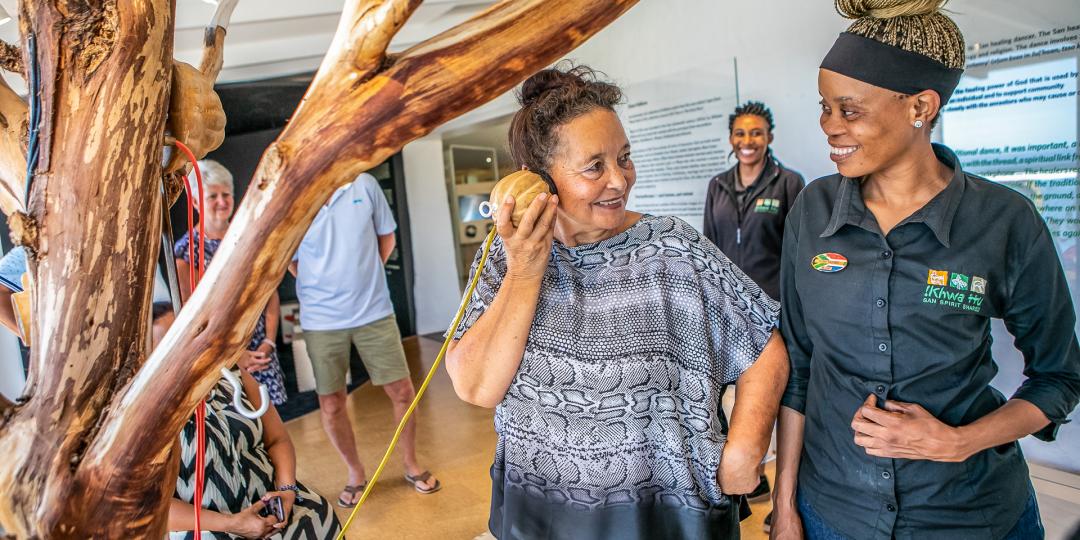The industry continues to grapple with how to redefine travel and tourism, particularly after the pandemic shone a spotlight on the sector’s many unfair trade dynamics that now need to be unpacked and addressed.
Speaking with Tourism Update following recent media reports highlighting the need to take action for change, Lisa Scriven, Programme Manager for Fair Trade Tourism (FTT) in southern Africa, said, as a concept, ‘fair trade’ facilitated greater equity to correct the rules and practices of conventional trade. “It demonstrates that a successful business can indeed put people and planet first,” she said.
“The objective of fair trade tourism is to improve lives, strengthen communities and protect the environment. When this is not happening, or worse when it is undermined, the rules need to change.”
FTT’s goal is to see all travel and tourism operate in a manner that is consistent with fair trade principles. “We applaud businesses that respect conditions of trade to ensure destination development, sustainability and integrity are not undermined.”
‘We’ve all learned lessons’
Emilie Hagedoorn, owner of Green Heart Tourism in the Netherlands, said tourism value chains were long, complex and only occasionally truly sustainable and/or sharing tourism spend fairly.
“The pandemic has exposed the ‘mystery’ of how money flows from traveller via intermediaries to suppliers in destinations and who earns what. We’ve all learned lessons and will hopefully make some better choices going forward.”
She said OTAs and airlines had been some of the worst performers, while sustainable tour operators and their DMC partners and suppliers had come out as some of the best because not only did they look after their travellers, but also their industry partners in destinations.
“We need to promote them even more now as reliable and responsible options. Luckily, they seem to be some of the most futureproof as well. Maybe that isn’t a coincidence?”
Hagedoorn said reputable tour operators in Europe had been open about how it worked and refunded clients regardless of whether they were getting money back from their suppliers and DMC partners in destinations. “Very often they didn’t.”
Consumers had learned the hard way that it could be very difficult to get money back from online booking platforms or airlines, she said. “Going forward, they will hopefully either book direct for a holiday that is not too complicated to piece together themselves or book via a sustainable travel company with good booking and contracting ethics that protect suppliers as well as consumers.”
The ongoing problem, however, was that travel companies and suppliers were generally ‘undercapitalised’, she said. “They don’t have enough operational budget and need consumers to pay in advance. COVID-19 exposed the flaws of this business model, especially with EU consumer protection law in place. There are companies, however, who use trust accounts and do not spend a client’s payment until that client actually travels.”
A more ethical industry
In 2018, Fair Trade Tourism joined forces with Travelife for Tour Operators in support of their shared commitment to promoting fair business practices across the supply chain.
Tour operators and travel agencies are awarded ‘FTT-Approved’ and ‘Travelife Partner’ status if they demonstrate how their operations ensure fair competition, ethical business practice and that trade terms with supply chain partners are fair and bilaterally agreed.
Naut Kusters, GM of Travelife for Tour Operators in the Netherlands, said supply chain partnerships led by fair and sustainable business practices would promote a more ethical travel industry.
“We do notice a growing interest in sustainability within the industry, but to become more ethical is a process that will never end.”
Kusters added: “It will be important to create a legal framework for this, as is the case within the EU in the frame of the package travel directive, although this concerns mainly consumer protection.”
In Hagedoorn’s view, sustainable tourism certification programmes in future should also include financial criteria such as fair pricing and contracting as well as having enough operational budget to run trips and pay suppliers.
Masterclass on sustainable yield
Judy Kepher-Gona, Founder and Lead Consultant at Sustainable Travel and Tourism Agenda (STTA) in Nairobi, Kenya, added that, like all industries, tourism had traditions that defined relationships in the value chain.
“These relationships can be complex and unique. Travel agents are part of this tradition. In the last five years, questions on percentage of revenue retention in destinations have emerged. It is a challenge that is wider than travel agencies.”
Kepher-Gona said for decades now, the industry had been working toward being more responsible and that sustainability in the value chain was a focal area. “So far, the greatest lesson learnt from pursuing sustainability is that sustainable tourism requires everyone to participate. Therefore, any solution to value chain concerns lies in inclusive stakeholders’ discussions to achieve equity.”
Any form of isolation or perceived discrimination, be it of clients or suppliers, would beat the whole purpose of pursuing the future vision of a sustainable tourism industry, she said.
“Travellers are seeking value for money and this should not be different in responsible destinations or when booking with responsible companies. Responsible destinations should offer value for money. The value is in the experience.”
For tourism companies and organisations interested in learning more about optimising sustainable tourism yield, STTA is hosting an online masterclass in August. Three-hour sessions will run over two days (August 25-26) and participants can follow this up by booking five direct online coaching sessions. The cost to register for the masterclass is US$100 and registration closes on August 20. A full-day workshop of face-to-face sessions in Nairobi can be also be facilitated, depending on interest.
The masterclass will equip participants with critical knowledge and deep understanding of the dynamic sustainable tourism landscape and provide them with tools to lead their companies to implement sustainable tourism strategies.























